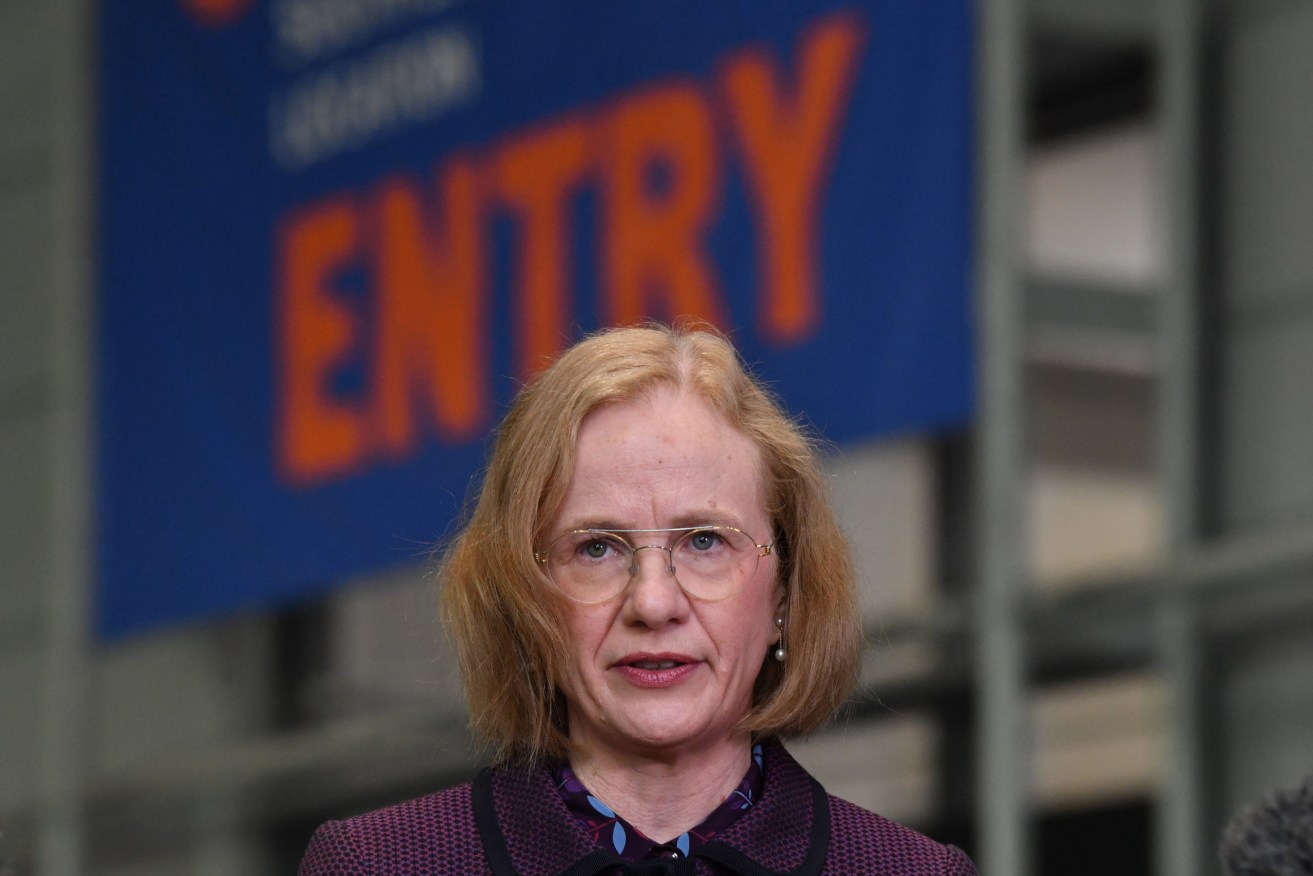Late surge in schools cluster but Queensland turns its attention to the border
The Palaszczuk government will further isolate NSW if the state cannot control COVID-19. The warning comes after the last Delta ‘incursion’ infected 130 Queenslanders – with more cases expected.

Queensland Chief Health Officer Dr Jeannette Young will commence a home quarantine trial next week for returning residents. (AAP Image/Darren England)
With 15,334 people linked to the Indooroopilly cluster still in home quarantine, the number of infections confirmed late in the incubation period is expected to see case numbers rise in the coming days. Some have come down with COVID-19 on day 11, and there is a requirement that everyone is tested on day 12 before they can be released on day 14.
Today, 10 more cases were added – all of whom were in home quarantine while infectious – taking the total to 130. This cluster started with a returned overseas traveller and ended up in schools, after a period in which Queensland had numerous Delta cases brought under control.
While lockdowns have been lifted, subject to masks remaining mandatory, Chief Health Officer Jeannette Young warned Queenslanders to be ready for swift changes should the contagious Delta variant again become a threat.
“We are going to see more outbreaks,” Young said today.
“This was our 15th incursion of the virus in the last six weeks. It was the 15th outbreak that got away and we ended up with 130 cases.”
While masks, QR code check-ins and tests will help contain any outbreaks, the rapid spread of Delta cases from the Greater Sydney outbreak, and into regional NSW, has the Queensland Government on alert.
Several NSW council areas around the open border zone have been placed into lockdown, and there are concerns for rural communities not as accustomed to living with the threat of COVID-19 as people in the cities.
Premier Annastacia Palaszczuk today urged people living in border towns not to travel to NSW, even for groceries, as the government sought meetings with mayors on the way forward. Police have also ramped up surveillance.
Queensland has largely relied on hotspot declarations to block entry into the state – restrictions are being lifted for South Australia, however they will need to travel by plane to avoid NSW – but is looking at what other measures might be needed.
Asked whether NSW could get to a level of vaccination coverage that mitigated the impact of new cases, Palaszczuk suggested the 70 per cent and 80 per cent thresholds would have to apply nationally – and even then might not be enough.
“I’m quite sure that’s going to be a collective decision of National Cabinet and there is no way that the other States and Territories are going to put their people at risk if there are increasing numbers in New South Wales,” Palaszczuk said.
“The last thing I want to see is the virus coming in, across the border, to our south-western communities or into the Gold Coast and sweeping north.”
Queensland Health has ramped up vaccinations in border communities, particularly in the south-west where police have previously found people from southern hotspots trying to cross the border by road.
Palaszczuk said the next 24-48-hours would prove crucial.












